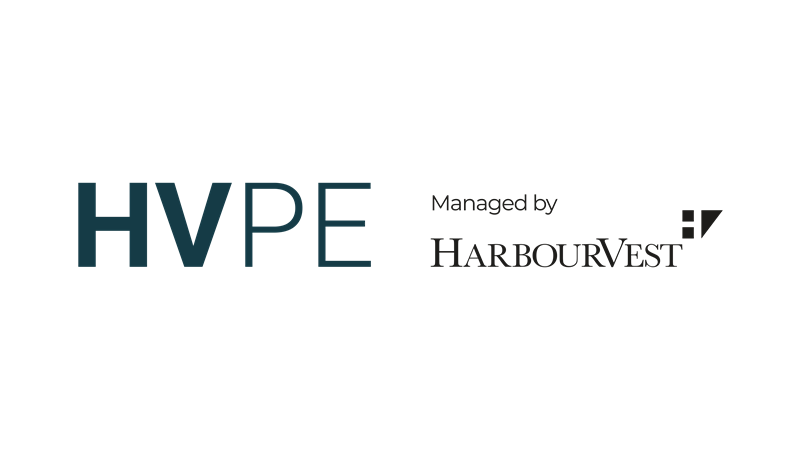Impact, The Meaning Of Success And The Female Investor: A Game-Changer For The Industry?
More women are taking control of their wealth, and yet less than 2% of capital goes to female founders. And women often invest differently than men, historically and now.
In this panel discussion with Amy Blackwell and Jessica Hackett, moderated by Wendy Marston, we explore what the changing landscape of wealth ownership means to the investment industry and why it may lead to an increase in impact investing. We also ask how is a female perspective changing the way wealth is invested and how businesses are run?
The characteristics of female investors and impact investing
Blackwell draws upon a recent report in the Harvard Business Review (HBR) to outline the historical and present traits of female investors, highlighting that historically women have had lower economic status and significantly worse pay. Women have also historically exhibited a lower-risk appetite and this has not gone away. There have been psychological studies showing that women feel less comfortable absorbing risk after becoming mothers, citing a feeling of duty and responsibility towards someone else.
This is often seen as women being emotional or based on a lack of understanding, but some of these traits are now making them better impact investors. They are taking the time to think about the impact agenda and giving it as much importance as the financial aspect. This leads to better due diligence and longer investment time horizons, based on a higher level of trust and greater transparency, which often translates into higher returns and lower fees, according to the HBR study.
Hackett believes that women look back more on family experience considering when was the money earned and what has happened with that money over time. As well as taking a long-term view towards the future, they are also cognisant of the history of the family.
Blackwell agrees that family shocks in the past affect women and can make them more cautious. Legacy is a significant underlying factor in their decision making.
According to Hackett, another trait that women tend to exhibit is that of being the peacemakers in the family and wanting to bring family members together, that inherent sense of nurturing that allows women to bring in other family members who have been excluded or ignored.
For Blackwell, this manifests as a focus on governance and a better communication protocols. Women often come together within a family and say they aren’t communicated with properly. Whereas some people say that women cannot make a decision on their own, she believes this is reflective of the collaborative nature of women, and their desire to make the best use of each individual’s strengths and knowledge.
Blackwell adds that women want to be told the truth, good or bad and they don’t want to be placated and sent on their way. Women are drawn to impact investing because of the opportunities for instigating social and environmental changes and they want to see their investments make a difference. But in order for them to believe and buy into that opportunity, there needs to be an institutional rigour on how the impact is measured so there can be an honest conversation involving several key questions such as how many people get helped, how do they get helped, how long is it going to take, how are we going to measure it and how can we react if it is going wrong? Women understand that an initial thought about an investment may not be what works but that with trust and transparency over time the solution can be found. There is less ego wrapped up in the initial decision.
Developing trust and transparency
Hackett believes this comes not just from honesty but also from listening and understanding what is really important to female investors. She recalls many meetings where the female family members have not even been acknowledged by the male advisors and asset managers in the room.
And, as pointed out by one guest, this isn’t a situation limited to women, but is also experienced by people of colour. The key factor in building not only trust but also in creating a balanced portfolio is in looking at all diversity, gender, race, age, etc. The bringing together of different perspectives, knowledge and experience leads to better decision making. Businesses that take a collaborative approach do better than those where one man is shouting louder than the others.
Blackwell feels that if you are looking at impact investing, a key part of collaboration is to be stakeholder driven. She identifies two important considerations - first, is this really a problem as identified by the stakeholders? Second, are we asking these stakeholders about what they think is the solution? Because, she says, these individuals may not regard the problem we are trying to solve as the most pressing problem with implications for the solution proposed as well. Finally she says we need to make sure that whoever is likely to lose power has a soft landing that leaves their ego intact. She feels this way of thinking is more instinctive in women.
Are women better impact investors?
One guest questioned if women were better fund managers or if it just appeared so because of the difficulties for women to achieve senior positions, those that have made it are the best in their fields.
According to Blackwell, in the last two years female-led investment teams have outperformed male led teams in both impact investing, private equity and asset management. The view laid out in the HBR report is that this is because of the characteristics exhibited by these fund managers - the pace with which they make the initial investments, the commitment to the long-term time horizon and the lower fees associated with being less reactive. That may be related to a female approach, or it may be a nuanced approach because they are the top of the top.
However, within the industry it is true that the women who have been the most successful have been the ones most like men. Blackwell recalls that having gone into banking in the 1990s, the whole industry was white=male dominated. There was tension and conflict around the expectation to be feminine but also aggressive, to work harder than your male counterparts and not have kids. She feels the whole culture needs to be more inclusive, because this is when you get the right people on the board who are dynamic and collaborative, who bring the right skills and behave the way they are meant to behave rather than fitting a cookie cutter approach.
Hackett believes that this change is what is needed to create progress, while the same old cookie-cutter approach leads to stagnation.
Change at the heart of the financial industry
It is projected that by 2030, 60% of wealth will be in female hands, and not just inherited wealth but also women building their own wealth.
Blackwell believes the asset management industry needs to be reflective of their client base and conscious of their concerns. She recounts: “When we talk to firms, they present their ESG framework, and at the end, we ask them if they took that tool that they use to review companies to invest in, if they turned it on themselves, would they invest in themselves?
“With the majority of firms there is a huge pregnant pause. That kind of transparency and introspection is something that women are now insisting they have in their advisers. Firms are being forced to see their short comings.”
Blackwell continues to explain the similarity between how women and next gens are using a more collaborative approach, developing an ecosystem of trusted advisers. For millennials, it comes from being team taught at school. They understand that they don’t need to know everything but rather they need to know how to put together a successful team.
Where the wealth management industry fails is that managers often function as silos – they have their assets, that’s how they are paid and bonused. Change is going to take radical thinking about how managers’ KPIs are set, how they are remunerated and how they are incentivised within these teams in order to actually service a family in an authentic way, one that doesn’t look like a box ticking exercise to a family. Many institutions think hosting great events is the way to engage with next gens, but next gens know this is a cynical exercise undertaken to try to keep them on board. These businesses would do better to spend this money in putting together teams in a more collaborative way and rethinking the way people are paid.
Hackett adds that firms also need to look not just at providing quarterly reports but adopt a long-term approach to servicing a family, taking a more holistic approach. Advisers need extend their skillset in order to be able to deal with the conversations about impact rather than trying to steer investors back into a traditional, financial-returns focus. What is needed is education and an openness from advisors. The impact conversation is a very different conversation than one that is focused on reporting financial returns. Hackett also believes there needs to be a greater use of technology, in order to define, identify and report on impact within portfolios and advisors need to be comfortable with using it.
The meaning of success
In Blackwell’s experience, she has often seen banks and institutions that claim to value philanthropy, perhaps even have a foundation or in-house donor advised fund. But what she has seen is a reticence to allocate the philanthropic capital because that depletes the assets under management. She believes that banks need to align their remuneration with what they truly value – if it is philanthropy then managers need to be incentivised differently, based on distributing capital and being a part of the stakeholders of the community in which they operate. There needs to be a rethink about what it means to be a good financial adviser.
For women, the terms of success are not just about the returns. Blackwell notes that when women talk about their investments they tell the story of their investments. Men focus more on the financials, and sometimes it’s a long time into the conversation before you even know what the investment was. For organisations, this is a big paradigm shift – to align with how their clients are viewing success and deciding who internally decides what that looks like.
This redefining of success also needs to be reflected in the eradication of the pay gap.
Hackett believes the solution lies in greater transparency and recognising value in a wider group. If there is more transparency around salaries and remuneration, then both sides have to openly show the value. These may be difficult conversations, but they can help identify what drives value creation.
Marston wonders if we need to challenge the basic assumption about value and remuneration, that higher financial reward is the only outcome. Historically men have one role – they are the breadwinner – make money, bring it home and pay the bills. Women are relatively new on this scene, so they have to do that and all of the other things still. So maybe if you can have a job that pays 10% less but you can leave at 3 because you have to do the school run, maybe you start a bit earlier or do compressed hours. Perhaps there is more value in the flexibility or in the other benefits. Generally, there needs to be more flexibility in looking at the whole package and not just for women but also for men because maybe they also would like to have some of this flexibility too.
Blackwell agrees, recounting a new practice seen at some employers where employees are given the opportunity to “sell” 10% of their pay package and “buy” extra holiday, a practice that has high take up where offered. For many individuals, quality of life is a part of the package.
One guest believes that culture comes from the top. The person at the top sets the tone, the goals and the values.
Blackwell agrees, but in looking at a top-down approach with all of these policies on diversity, they are often not felt at every level of business. The hardest part is often getting middle management on board and integrating these values so that they trickle down throughout all levels.
The greatest challenge, according to Blackwell, with a bottom-up approach is often a lack of confidence. When a woman goes into an annual review, they are often told they are worth X amount presented in a way that implies they should be grateful. And for many women, imposter syndrome is a real issue, preventing them from realising their own value. Also, with women as the peacemakers, creating conflict is often challenging and against their natural instinct.
However, as outlined by one guest, we are seeing a change in this behaviour, with more women starting their own businesses, whether in emerging or developed economies and driving the shift of wealth. We are also seeing trends driven by LPs, putting pressure on GPs to extend carry to all members of staff and to keep founders in businesses for longer. Still there are women – single mums, trafficked women, asylum seekers – who have got themselves this far, but lack opportunity.
Blackwell says they have not had opportunity but they have something inside, an internal survival strength that gets women to that point and they need support to be able to take the opportunities. And this makes good business sense - if you look at micro loans, the percentage of loans to women that have been paid back versus percentage of loans to men, is significantly higher.
It comes back to collaboration and support. Women are better at helping each other. According to one guest, men also can benefit from a new paradigm of collaboration and support, pointing to the high levels of male suicide as how the old system is failing men.
There is a belief that in order for women to rise, men need to fall. The conversation should rather be about the idea that if one person rises, everyone rises and therefore how do we make the whole system better for everyone.
John Lappin is Contributing Editor at WM Nexus
© The Sortino Group Ltd
All Rights Reserved. No part of this publication may be reproduced, stored in a retrieval system or transmitted in any form or by any means, electronic, mechanical, photocopying, recording or scanning or otherwise, except under the terms of the Copyright, Designs and Patents Act 1988 or under the terms of a licence issued by the Copyright Licensing Agency or other Reprographic Rights Organisation, without the written permission of the publisher. For more information about reprints from AlphaWeek, click here.







